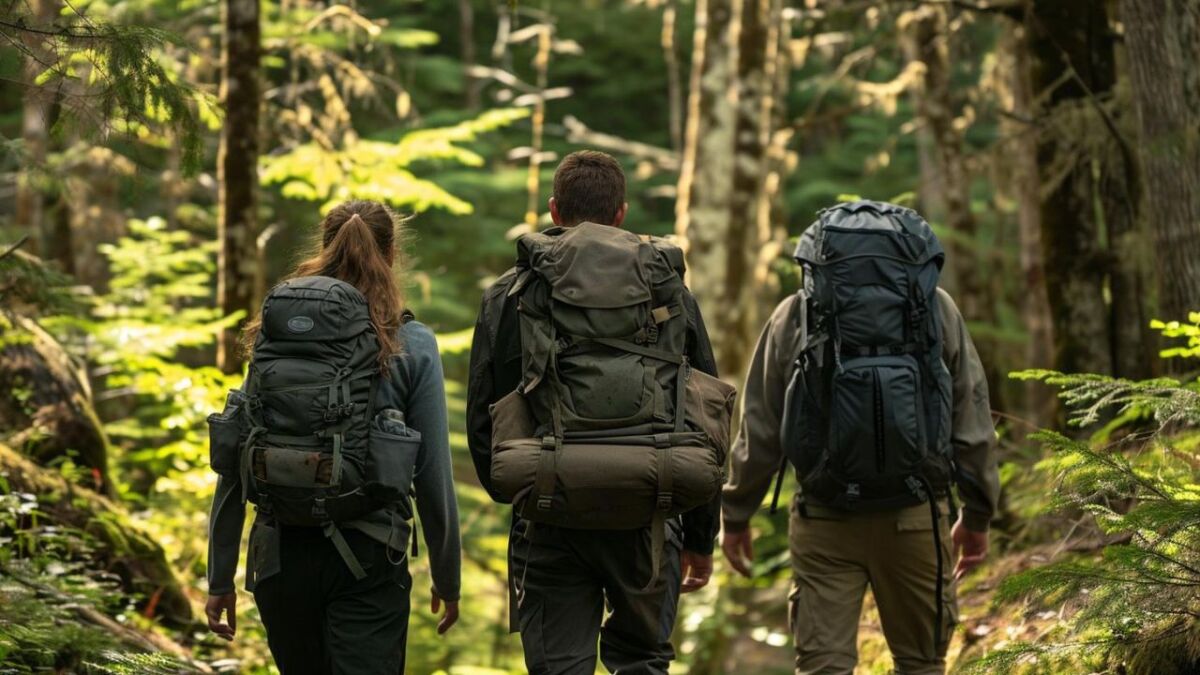
The survival rule of three - solid construct or not useful?
👉 The key facts from this guide
- The survival rule of three is not a fixed construct and should not be considered an immutable law, as it neglects individual situations and environmental conditions.
- The rule of three can serve as a device for important survival aspects when excluding its internal hierarchy and the claim to prioritize.
- The priorities in a survival situation strongly depend on individual circumstances and surrounding factors.
- The four basic needs in survival are fire, water, shelter, and food, whose priority varies depending on the situation.
- It is significant to distinguish between short-term and long-term consequences and focus on situational analysis.
- It is advisable to always critically question existing concepts and to gather comprehensive information.
Survival - a term often associated with adventure, wilderness survival, or emergency situations.
But what exactly does survival mean and what are the rules that are considered important?
I've been thinking about this and I want to share my thoughts with you - after all, you should benefit from them too.
You've probably heard of the Rule of Threes or multiple Rule of Threes in the survival area.
I have been wondering for some time whether the Rule of Threes is a useful construct or it can even hinder you from surviving.
In this article, I want to shed light on this topic and share my knowledge with you.
I hope you stay attentive even though we should start with the basics before we dive deeper into the Rule of Threes.
What does survival actually mean?
Survival, the ability to stay alive in a critical situation, is a concept that is perceived and understood differently by many people.
You may have noticed yourself that your priorities often lie elsewhere than those of other people who are dealing with the survival concept.
For some, it means surviving a natural disaster, for others, it means surviving in a complex urban environment (Urban Survival, read more here) and for others in a post-apocalyptic world.
(If you have time, definitely read my article on survival. You will get a comprehensive overview - but better grab a pot of coffee)
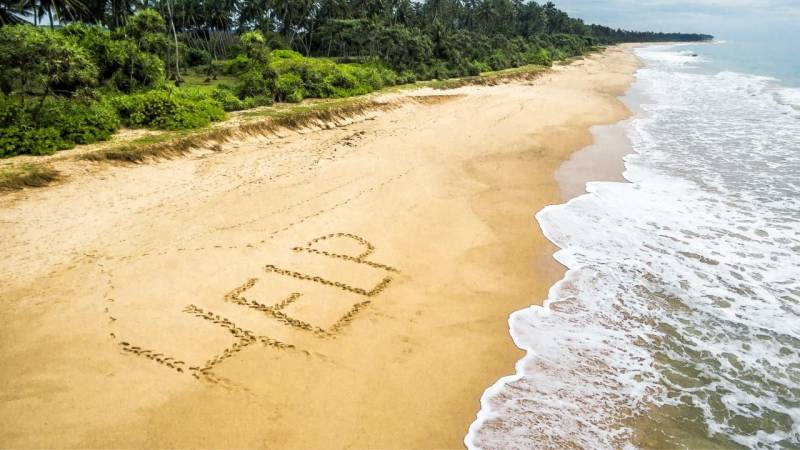
Is there even a fixed guideline that we can orient ourselves on?
In general, survival refers to the ability to survive in a challenging environment and obtain the necessary resources to do so.
In survival, it is important to satisfy all vital needs to ensure survival. – Martin Gebhardt
This can mean, on the one hand, that you have to learn how to obtain food and water, find shelter from the elements, and protect yourself from threats.
It can also mean that you have to figure out how to provide medical care and make critical decisions to survive in an unforeseen environment.
As you can see, the concept of survival is incredibly versatile and very individual – this is also where the difficulty lies – it is incredibly difficult to set correct priorities that apply equally to all people – if not impossible.
But that is exactly what the "Rule of Threes" tries to do – with success, or rather not?
What does the Rule of Threes say?
The Rule of Threes is supposed to represent a universally applicable "rulebook" for survival situations that one should adhere to if one wants to emerge successfully and unscathed from an extreme situation.
So that we can assess this together in this article, we should first agree on a meaning of the Rule of Threes – there are actually several of them.
I will name the two most important or well-known ones:
Meaning #1 of the Rule of Threes
The Rule of Threes is most commonly quoted approximately as follows.
The human body reaches its limits after:
- 3 seconds of inattention
- 3 minutes without oxygen
- 3 hours without protection in very extreme weather conditions
- 3 days without water
- 3 weeks without food
- 3 months without social contacts
The rule of three here provides the order of priorities that supposedly matter in a survival scenario.
You probably know the rule of three without "inattention" and without "social contacts". However, some include these in their books, so they are included here.
Here's a graphic for reference:
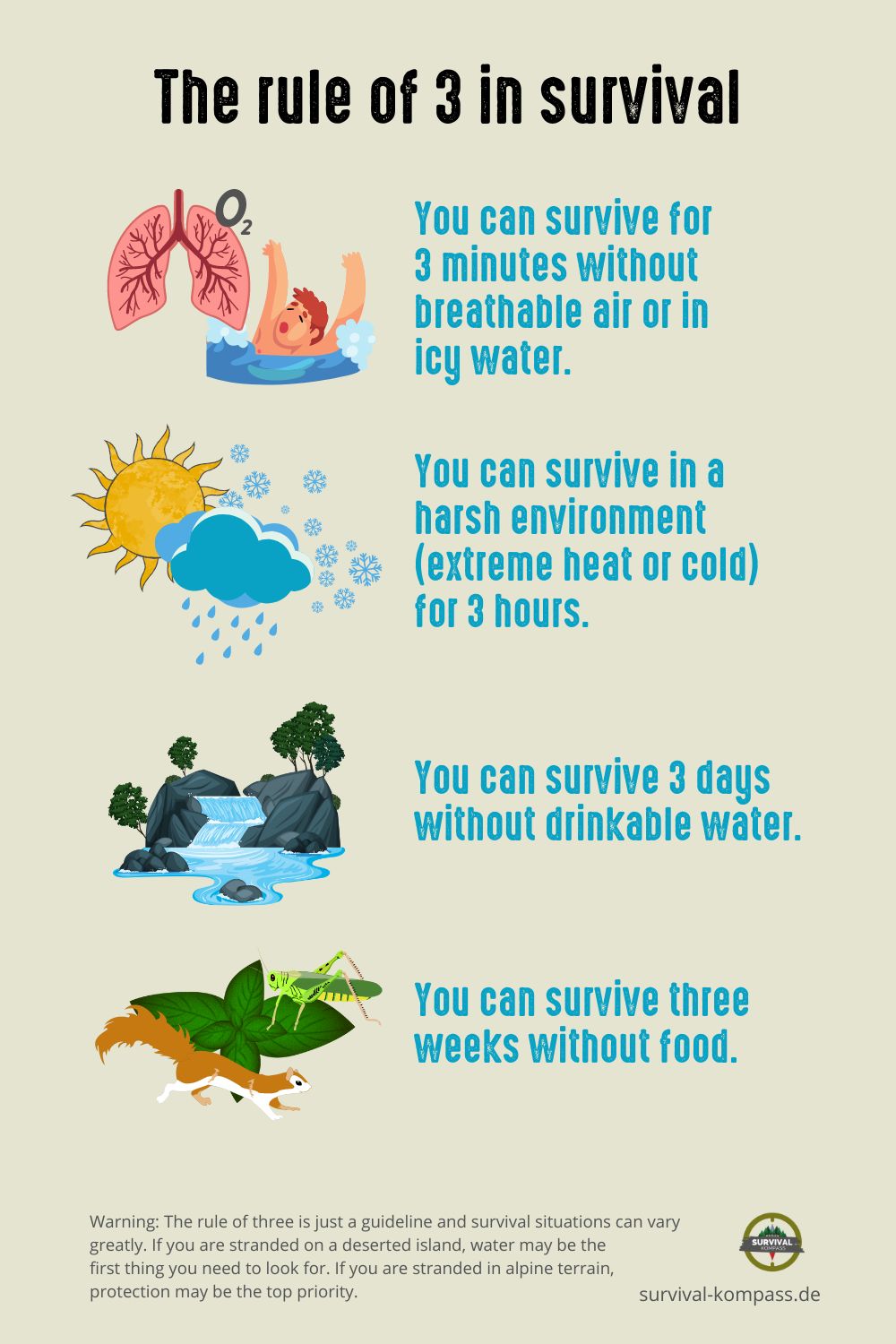
Meaning #2 of the rule of three
Here, too, the rule of three refers to priorities that you should set in an emergency situation, but in a more general sense:
- Survival - This is about ensuring that you stay alive by finding shelter from the elements, direct hazards, and potential threats.
- Signaling - This is about making yourself known to be rescued - using, for example, smoke signals or other signals.
- Find food and water - Here you are supposed to build up adequate supplies of water and food to survive over a longer period of time.
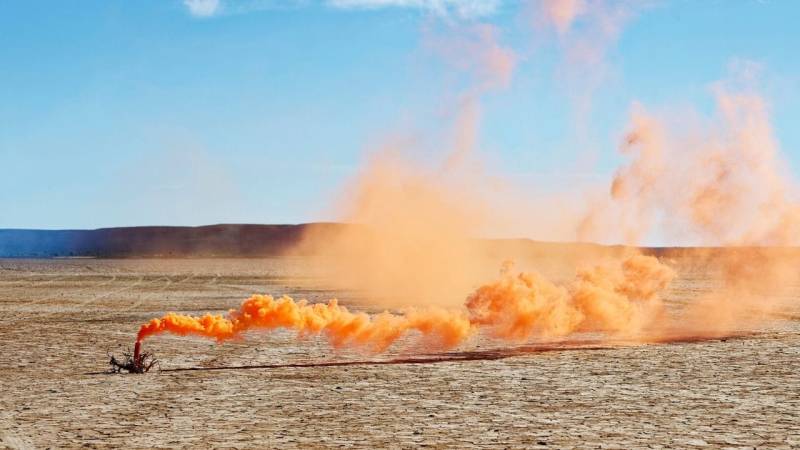
Although the meanings differ in the phrasing of the two constructs, their precision and their set ranking, they have one thing in common: a focus on priorities.
The entire rule of three is based on a fixed construct of priorities that should always be followed in order to ensure long-term survival.
The problem with priorities – some are more urgent in one situation than in another
At first glance, you may agree and be convinced that the priorities of the rule of three are justified.
After all, you should always make sure that you are protected from the elements, set up a shelter, or find a safe haven where you can stay for a while.
Or maybe not?
Three minutes without oxygen or air is very realistic. Some can hold their breath for longer, some for less time.
But the other constructs ... they bother me a bit and I want to give you a few examples.
Let's illuminate the whole thing with a thought experiment:
You are currently in a survival situation on a hot summer day. Since you are in the middle of the forest, you are protected from the scorching sun's rays to some extent, but you feel the oppressive heat very clearly – just like your body does.
You are following the rule of three commendably and therefore want to ensure your protection from the hot weather and perhaps also from wild animals first and foremost. Depending on which of the two meanings mentioned above you prefer, it may also be that you are already looking for ways to make yourself noticed in order to be found quickly.
Pushing the search for food or water to the backburner for a bit, after all you can survive three days without water, right? Well, here's the problem: on a hot summer day, you use up a lot of fluid - even more so if you're moving around a lot, searching for shelter or ways to signal for help.
Before you know it, you begin to dehydrate. You become increasingly dry and eventually become unable to perform the necessary tasks needed to survive. You clearly set your priorities wrong because you strictly stuck to the Rule of Threes from the textbook.
Let's flip the thought experiment around:
Instead of being in the midst of the hot summer season, you're now in the middle of a cold winter month. The frost creeps through your limbs, snow falls incessantly, and the temperature drops so quickly to below freezing that you can barely take a step without shivering from the cold.
What does it look like now? Well, the answer is clear! Find or build shelter as quickly as possible and protect yourself from the extreme weather conditions! Water or food won't help if you've turned into ice. Besides, under certain conditions, you can even eat snow to stay hydrated.
Notice anything?
In our thought experiment, only the environment has changed, nothing more and nothing less.
However, this change is enough to completely shift the priorities you must set to survive.
In the first scenario, you should find a water source as quickly as possible, in the second one, you should first find shelter.
Such thought experiments could now be spun infinitely – the result will always be the same: what priorities one has always depends on the circumstances of the current survival situation of the person experiencing it.
Also read
Finding, Collecting, Filtering and Purifying Drinking Water – the Ultimate Water Guide – Finding water is one of the most important survival skills. In the article, you will learn everything about precious water: how to find, collect, and filter it.
Issues with Priorities? All Needs are Important!
It should be noted, fairly, that you can of course generally use the rule of three as a mental guideline to remember which factors play a role – however, the order also deviates from the "basic rule" due to your individual situation.
Here is another example that will open your eyes:
Imagine you are in the middle of a survival scenario, namely at a river or lake – ideal for water supply.
However, in order to safely consume the water, you should clean, filter or boil it before drinking it.
Because you are pretty sure that there are several contaminants, such as dangerous germs, in your water source.
Do you now decide for your short-term or long-term survival?
If you drink contaminated water, you may be hydrated for the moment, but you can also develop severe intestinal problems, such as severe diarrhea, which will further dehydrate and weaken you, endangering your long-term survival.
If you boil water, you will get a safe and clean fluid supply - but not immediately. For the moment, you will be without fluid until you have finished boiling / cleaning / filtering the water.
At first glance, it may seem logical to drink the water in order not to die of thirst. But this can be a big mistake that can even cost you your life in the long run.
Contaminated water can cause infections with salmonella and other pathogens that settle in your body.
Parasites such as liver fluke or paired fluke can also be taken up through contaminated drinking water and cause long-term health damage.
It is therefore important to distinguish between short-term and long-term consequences.
If you are only concerned with surviving immediately, you can drink the available water and later try to eliminate the damage by treatment with medication or medical help.
However, if you want to ensure that you come out of this situation without medium or long-term health damage, you should rely on purified water or look for alternative sources.
Because nothing is more important than our health and well-being.
More examples that the rule of threes is a weak construct and you should not rely on it 100 percent
Drinking water
When it comes to drinking water, you can survive for about a week without water and with little movement in very cold weather.
However, drinking contaminated water, poisoned water, or saltwater can lead to diarrhea within a few hours and quickly result in death. If you work hard and sweat a lot, you can become dehydrated in less than three days without water.
If you're interested in how to purify saltwater, read my guide "5 ways to remove salt from water".
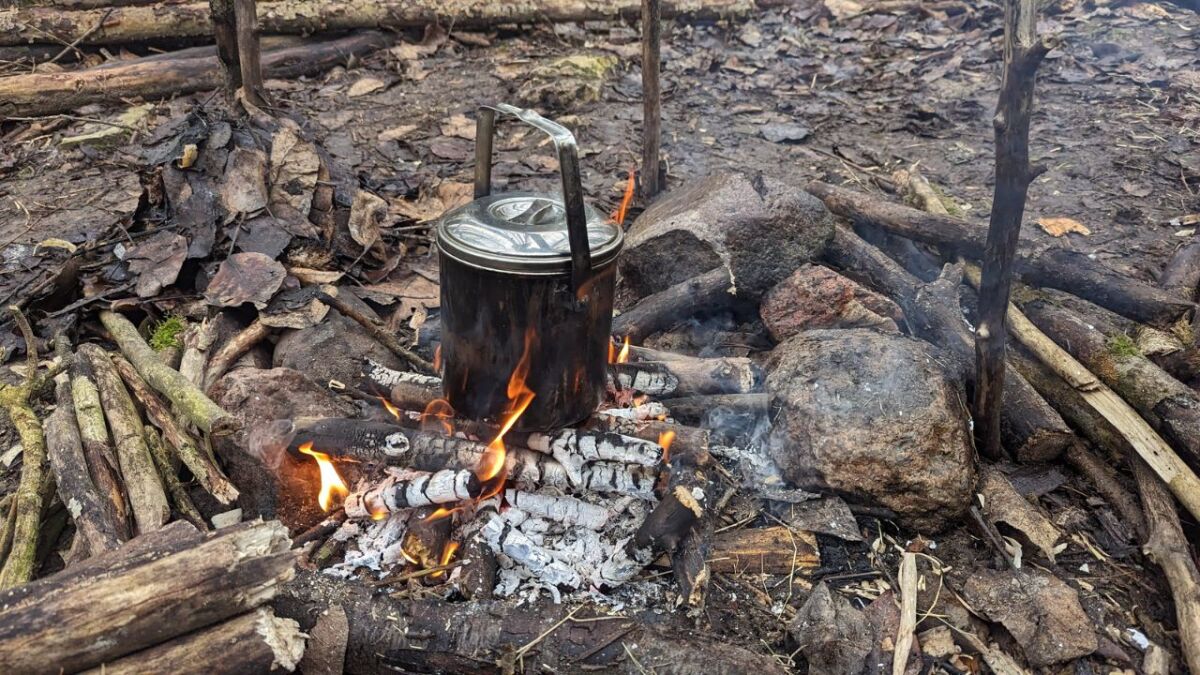
Food
Humans can survive up to three weeks without food. Healthy people can also last three months, and overweight people can last a year.
However, food is not just essential for filling the stomach. Without food, you become weak, demotivated, and exhausted. You are no longer able to perform at your best.
And imagine being so exhausted that you can't even start a fire. Starting a fire without a lighter or matches is a process that can take a lot of time and energy in an emergency outside. So now you have untreated water, but no longer have the strength to boil it. That would be a huge problem.
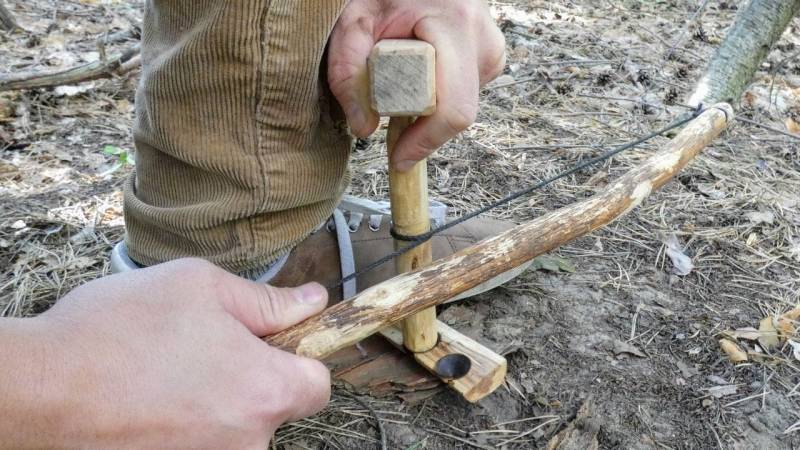
Shelter
It may be that you don't need much or any shelter at all. If the temperature is a comfortable 25 degrees and you have a tarp or shelter, there may not be much to do.
It's completely different when you're fighting for survival in a tropical area, struggling with high humidity and constant rain. Then you need protection from animals, rain, and a resting place.
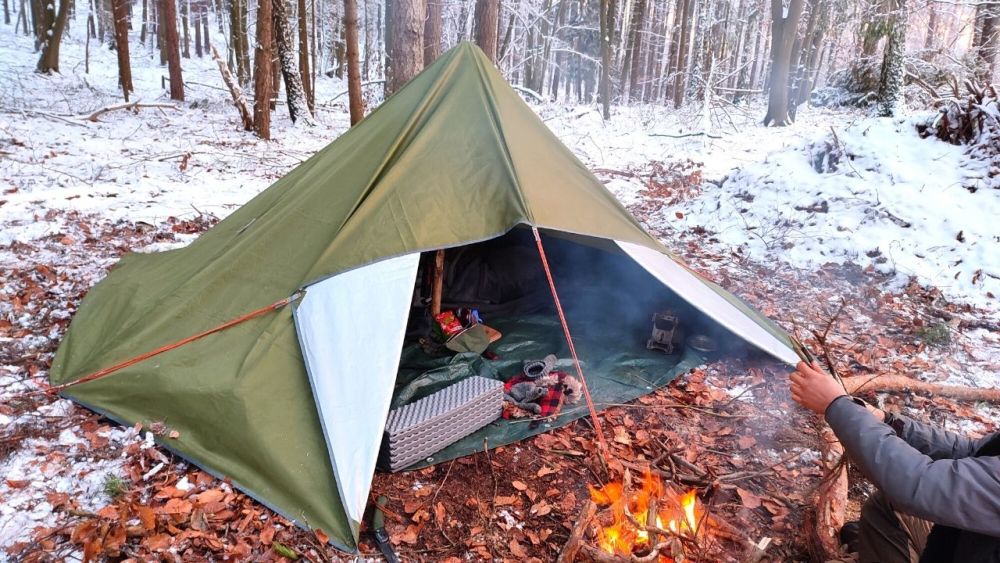
Social Contacts
Social contacts are important for many people, but there are also people like monks, computer scientists or hermits who can do without any social contact for several months or even years.
It's all a matter of perspective
For example, if you are off the grid for seven days, maybe on a deserted island (here is my guide to the lonely island and my top 7 items), you can't just say:
"I only need water and I probably don't need food because I haven't starved after seven days."
This doesn't work because a lack of food means you're not able to collect water or build a suitable shelter.
If you neglect one area, you will neglect the other areas and not be able to plan and act meaningfully.
As you can see, the priorities you set in a survival situation mostly depend on yourself and the factors surrounding you.
In the field of survival, we speak of four basic needs that must be covered:
- Fire
- Water
- Shelter
- Food
These needs are not arranged in a specific order, and it is important in every situation to assess what is most urgently needed.
Even if someone is in a similar situation or only a few kilometers away, the priority list may differ. This requires experience, training and practice to be able to act appropriately in every situation.
A rigid construct like the Rule of Threes represents a significant weakness in this case, at least if it is perceived as a fixed law - it neglects your individual perspective.
You may be familiar with it from prepping - while there are some guidelines, basics, and food for thought that you can orient yourself to, your exact approach will always be based on yourself and your personal situation - your perspective.
You know what is most important to you in this moment - not a prefabricated rule.
The factor of situational analysis remains important in survival, and nobody can take that away from you.
No matter what emergency situation you find yourself in, you must always be able to look around independently, get a picture of the situation, and then act appropriately.
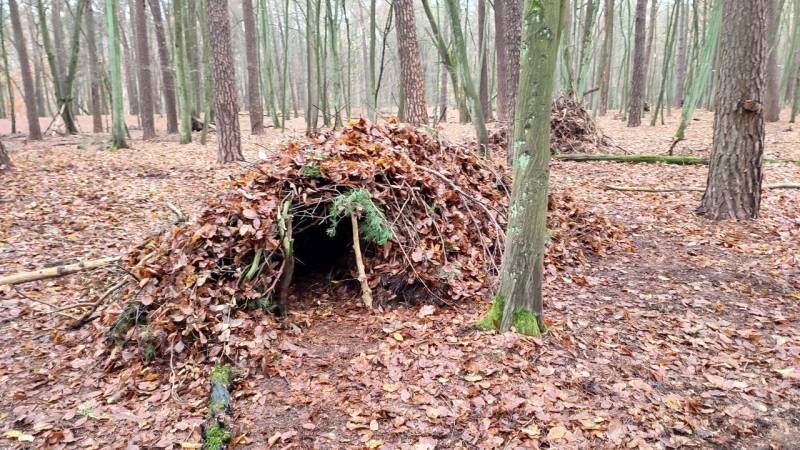
My recommendation: Take the Rule of Threes as a mnemonic, not a law
You may have gained the impression from reading the previous paragraphs that I consider the rule of threes to be completely useless, but that is not true.
I am simply convinced that you should regard the rule of threes for what it really is. It is a mnemonic device that can help you in emergency situations to pay attention to what is important.
So, formulate the rule of threes as questions that can help you.
In practice, you can implement it as follows:
- 3 seconds of inattention: "Am I attentive enough / am I focused? What potential threats are immediately around me that I must not neglect?"
- 3 seconds without oxygen: "Is my air supply acutely endangered (for example, by fire and smoke)? If I have to flee from something, do I have the breath / stamina for it, or do I need to prepare otherwise?"
- 3 hours without protection in extreme weather conditions: "What is the weather like? How could cold or heat affect my survival?"
- 3 days without water: "Am I currently hydrated? Where can I find water? Do I still have water with me? How long will my supplies last?"
- 3 weeks without food: "Do I still have supplies with me? What kind of food can be found nearby - meat (hunting), berries, insects, mushrooms and herbs?"
Of course, these are just examples that you can use, but do not have to.
I just want to make it clear that you can use the rule of threes as a mnemonic device for important survival aspects, if you put aside its "internal ranking" and the demand to prioritize.
Conclusion: The Rule of Three is not a fixed construct and only partially useful in practice
Throughout this text, I believe we have answered the question of whether the Rule of Three is a necessary fixed construct with a clear "no".
Regarding its prioritization, it unfortunately ignores important factors such as your environment and individual situation in practice – the personal perspective is not included in its rules.
However, you can still use it as a rule of thumb, because without a doubt, it mentions factors that are very important in survival situations and can make the difference between life and death – but the claim of prioritization must be rendered obsolete.
I hope this article has helped you and expanded your horizons a bit.
Remember to always question existing concepts critically, to inform yourself properly, and to form your own opinion.
I'm not always looking for agreement either. Look around my blog and read some of the articles. Are there things you don't agree with?
Great! You may develop new approaches that are even better than mine and can benefit from them and perhaps even share your insights.
After all, you never stop learning, right?
Anyway, thank you for your attention and I hope you actually take a look around my blog – see you soon.


Author of the guide
Martin Gebhardt
Hey, I'm Martin. On my blog, you will learn the basics and numerous details about living in the wild. I think survival, bushcraft and the good life in nature are the keys to happiness. Find me here on Instagram or on YouTube. You can find more about my mission on the About Me page.
Was this guide helpful?
29 people found this guide helpful.
5.00 out of 5 points (29 Ratings)
Comments (0)
This post may contain affiliate links. So if you click on the links and make a purchase, I will receive a small commission at no additional cost to you. Click here, to learn more about it.


